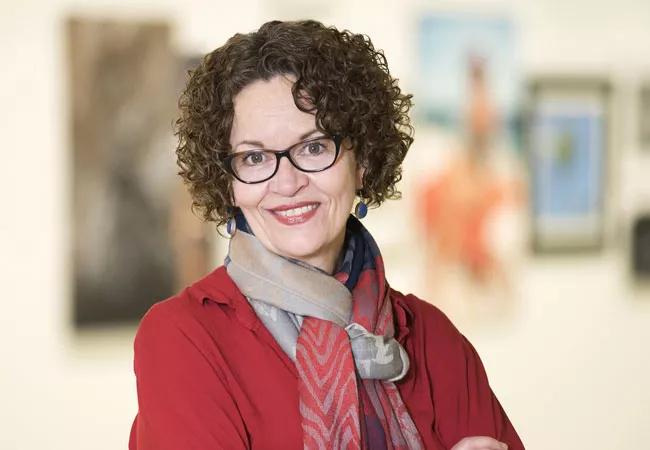A conversation with Rev. Amy Greene, DMin

Image content: This image is available to view online.
View image online (https://assets.clevelandclinic.org/transform/fce812fd-ba09-4a95-a00d-589d428be051/19-CCC-4031_Greene_CQD_650x450_1_jpg)
19-CCC-4031_Greene_CQD_650x450_1
Rev. Amy Greene, DMin, is Director of Spiritual Care at Cleveland Clinic. She oversees a group of professionals (i.e., chaplains, chaplain-educators, holistic nurses and family liaisons) who offer spiritual care to Cleveland Clinic patients, families and caregivers. She also currently serves as Board Chair for the Association for Clinical Pastoral Education (ACPE), which sets the standards for spiritual care and education in the United States.
Advertisement
Cleveland Clinic is a non-profit academic medical center. Advertising on our site helps support our mission. We do not endorse non-Cleveland Clinic products or services. Policy
In this Q&A, Rev. Greene discusses spiritual care at Cleveland Clinic, the importance of empathy and self-compassion.
What would you like physicians to know about spiritual care and your role at Cleveland Clinic?
Chaplains are part of the multidisciplinary healthcare team; we’re ministers whose faith is our motivation, but not our agenda. It’s very different from congregational ministry where one is expected to bring others into their particular “fold.” Instead, we are there for everyone — even the non-religious.
A large majority of people in this country still identify as “religious and/or spiritual,” and The Joint Commission requires that healthcare institutions take their needs seriously and make culturally competent provisions. Therefore, spiritual care in healthcare should only be done by highly trained professionals.
People come to Cleveland Clinic from all over the world to find healing. And even if they don’t all get a cure, I pray that we do our best for every single one — through any condition, even death, with the utmost compassion and dignity.
And we are here for our fellow caregivers, too — everything from confidential quick chats to longer-term relationships. We love being able to support other members of the team. All they have to do is call — or even page us!
You were featured on the new Cleveland Clinic podcast, Studies in Empathy. Why do you feel a podcast that looks at empathy in healthcare is important?
Because I think empathy and compassion actually take a lot of hard work. We often misunderstand and diminish them as being “touchy feely” or “warm and fuzzy.” It’s actually not either. It’s about the relief of suffering, not just being nice.
Advertisement
In the podcast, entitled, “We All Cry Salt Water and Bleed Red,” you talk about the concept of self-compassion. Tell us more about that.
I think self-compassion is different from self-care, and actually quite difficult for those who gravitate toward caregiving. That’s because, as a general rule, we’re more comfortable giving help than asking for it. Self-compassion is recognizing our limitations rather than always simply trying to power through them.
When it comes to end-of-life care, what’s one thing you would like to help providers realize?
Families and patients often do want to talk about their end-of-life choices and care, but providers may be reluctant to bring it up. There are those among us, however — such as the Center for End of Life Care, Palliative Medicine or Spiritual Care — who are more than ready to have those conversations. Please refer.
Do you have a personal motto you live by?
“Try to love other people — all of them — to the same degree that you love yourself and your loved ones.” This is especially relevant in healthcare. We have a moral obligation to be inclusive.
Advertisement
Advertisement
In rehabilitation medicine, the answer might require nuance
Mental health colleagues can provide much-needed perspective
Palliative care specialists know hard conversations can also be valuable ones
Variables affect nuances of the conversation
Authors discuss ethical challenges associated with sponsored genetic testing
Program focuses on nurturing ethics leaders in daily practice
Medical, ethical and legal considerations
An end-of-life dilemma in the intensive care unit